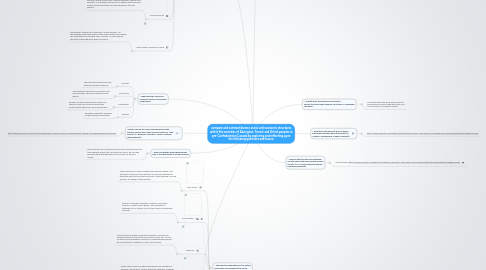
1. • What were the social and economic factors of European imperialism?
1.1. Curiosity
1.1.1. The Europeans wanted to know what lay beyond the horizon.
1.2. Economics
1.2.1. The Europeans wanted to go collect all the new resources. The most valued resource was fur.
1.3. Compatition
1.3.1. Europe's countries were usually at war over resources and land. The more places the country owns means they are more powerful.
1.4. Religion
1.4.1. Europeans wanted to spread all of their religions everywhere.
2. • Who were the key figures in the French exploration and settlement of North America?
2.1. Samuel de Champlain
2.1.1. Samuel de Champlain was The Father of New France", was a French navigator, cartographer, draughtsman, soldier, explorer, geographer, ethnologist, diplomat, and chronicler. He founded New France and Quebec City on July 3, 1608.
2.2. Jacques Cartier
2.2.1. Jacques Cartier was a French explorer of Breton origin who claimed what is now Canada for France.
2.3. King Louis XIV
2.3.1. King Louis was known as Louis the great was a bourbon monarch who ruled as king of France
2.4. Pierre de Monts
2.4.1. Pierre Du Gua de Monts, was a French merchant, explorer and colonizer. A Protestant, he was born in Royan, France and had a great influence over the first two decades of the 17th century.
2.5. René Robert Cavalier de la Salle
2.5.1. René Robert Cavalier de la Salle was a French explorer. He explored the Great lakes region of the United states and Canada, the Mississippi river, and the Gulf of mexico. La Salle claimed the entire Mississippi River basin for France.
3. • What roles did the Royal Government and the Catholic Church play in the social structure of New France (i.e., governor, intendant, Jesuits, religious congregations)?
3.1. https://www.evernote.com/shard/s155/sh/f998f744-8a7f-4cb9-a0f4-f86faefbf3ec/cd31be41d7cd8d29f3e6cc6ea08cb255
4. • Who were the key figures in the British exploration and settlement of North America?
4.1. John Cabot
4.1.1. John Cabot was an italian navigator and explorer whose 1497 discovery of parts of North America is commonly believed to have been the first European encounter of the mainland of North America. He wiped out the Beothuk.
4.2. King Charles ll
4.2.1. Charles II was king of England, Scotland, and Ireland. Charles II's father, King Charles I, was executed at Whitehall on 30 January 1649, at the climax of the English Civil War.
4.3. John Guy
4.3.1. John Guy was an English merchant adventurer, colonist and politician who sat in the House of Commons from 1621 to 1624. He was the first Proprietary Governor of Newfoundland and led the first attempt to establish a colony on the island.
4.4. Henry Hudson
4.4.1. Henry Hudson was an English sea explorer and navigator in the early 17th century. Hudson made two attempts on behalf of English merchants to find a prospective Northwest Passage.
4.5. Walter Raleigh
4.5.1. Walter Raleigh was an English aristocrat, writer, poet, soldier, courtier, spy, and explorer. He is also well known for popularizing tobacco in england.
4.6. Henry Kelsey
4.6.1. Henry Kelsay was an English fur trader, explorer, and sailor, who played an important role in establishing the Hudson's Bay Company in Canada.
4.7. Anthony Henday
4.7.1. Anthony Henday was one of the first white men to explore the interior of the Canadian northwest. His explorations were authorized and funded by the Hudson's Bay Company
